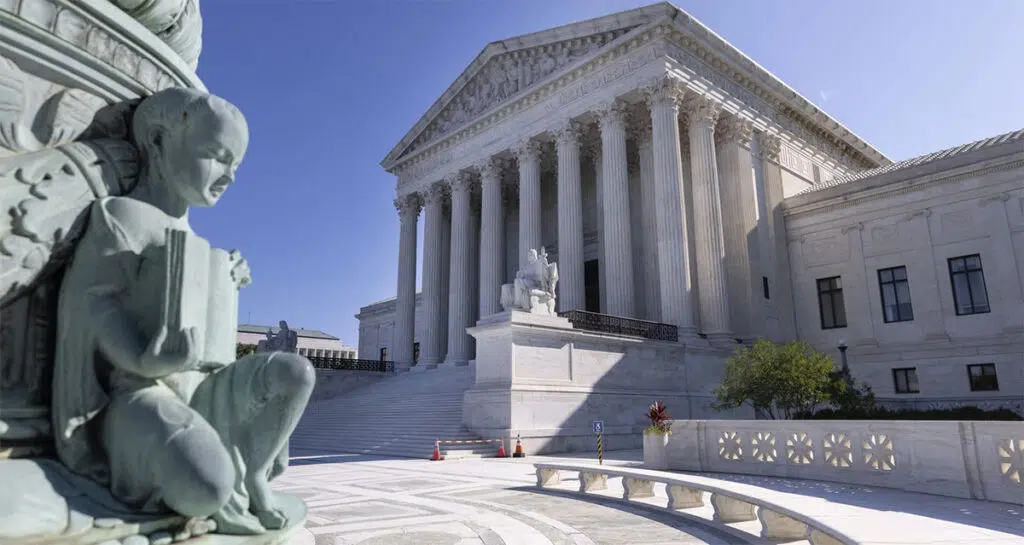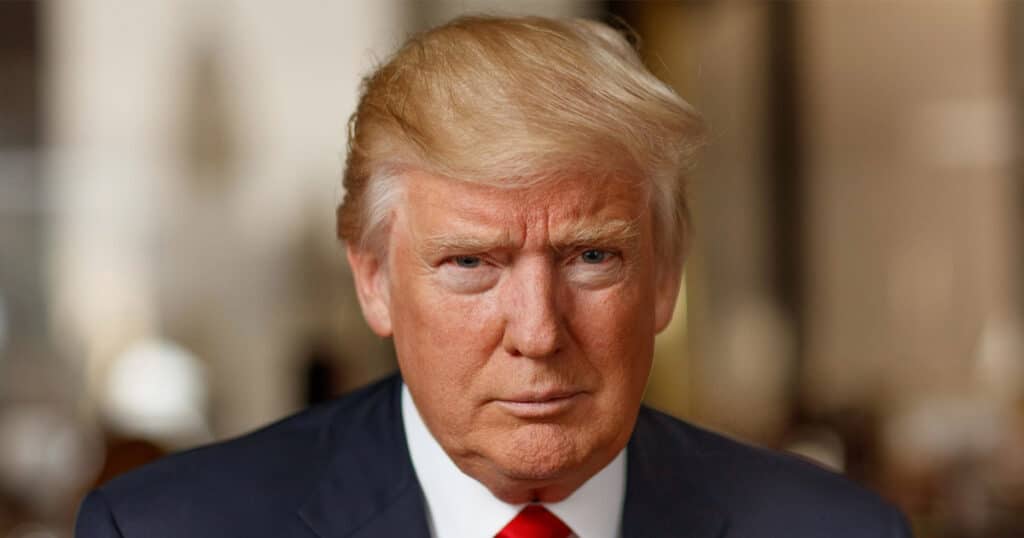
Chevron Deference, Long Abused by Federal Agencies, on Supreme Court’s Chopping Block?
Who makes the law in America? If you answered “Congress,” you’d be partly right. Congress makes part of the law in America, but only a very small part.
And who interprets the law in America? Again, if you answered “the courts,” you’d only be partly right.
Vastly more law is made and interpreted by the hundreds of federal agencies and subagencies—nobody knows exactly how many there are—that make up our leviathan administrative state.
The drift away from representative self-government and toward administrative rule has steadily increased over the past hundred years, but it accelerated after the Supreme Court’s 1984 decision in Chevron v. Natural Resources Defense Council.
In that case, the Supreme Court held that whenever a law is ambiguous, a federal agency is free to interpret the scope and content of that ambiguity any way that it likes, limited only by the requirement that its interpretation be “reasonable.”
Not surprisingly, agencies have exploited this deference to expand their powers for nearly 40 years.
Now, the latest administrative self-aggrandizement might be the last. The Supreme Court has grown skeptical of its “Chevron deference” doctrine, and on Monday, it agreed to hear a case that may spell the doctrine’s demise.
Loper Bright Enterprises v. Raimondo, which the court will hear sometime this fall, presents a frontal attack on Chevron deference. The plaintiffs are fishermen and the defendant is Commerce Secretary Gina Raimondo, whose subagency, the National Marine Fisheries Service, has forced fishermen to pay the salaries of the federal inspectors that federal law forces them to carry aboard their boats.
The fishermen say that no law gives the National Marine Fisheries Service the power to force them to pay inspectors’ salaries. They are correct about that. The law that governs the Fisheries Service is silent about inspectors’ salaries.
But the Fisheries Service says that, under Chevron, the law’s silence is its cue to speak. And it says that its inspectors’ salaries should be paid by the fishermen.
The U.S. Court of Appeals for the District of Columbia Circuit agreed with the Fisheries Service, saying that silence is “room for agency discretion.” But in dissent, Judge Justin Walker retorted that silence is “exactly that: silence.” It isn’t the permission that an agency needs from Congress before it can impose its will on its subjects.
Recent history indicates that the Supreme Court might agree with Walker. The court has been increasingly skeptical of Chevron deference, and several current justices have criticized it.
Still, the court has declined several past invitations to overrule Chevron. Could this time be different? In other recent cases where the Supreme Court has had the chance to overrule Chevron, it has instead ignored that case entirely, finding that there was no ambiguity in the statute and thus nothing for an agency to interpret.
But that artful dodge is unlikely here.
The Supreme Court agreed to hear the following question: “Whether the court should overrule Chevron or at least clarify that statutory silence concerning controversial powers expressly but narrowly granted elsewhere in the statute does not constitute an ambiguity requiring deference to the agency.”
It passed up the chance to hear the petitioners’ more modest contention that they could still prevail under the clear statutory language even if Chevron applied.
In short, it looks as though the Supreme Court now wants an opportunity to confront and possibly overrule Chevron. If it does so, what’s the likely impact?
The effects of discarding Chevron could be large, but probably not as large as some of its critics and defenders think. For one, much of Chevron’s territory has already been taken back by the court’s textual analysis, which eliminates many of the ambiguities that agencies are wont to exploit.
In several cases, the court has sent subtle signals to the lower courts that they should apply standard interpretive tools to statutory texts more rigorously before reaching for Chevron deference.
But the Supreme Court has sent that signal several times, and the lower courts have ignored it. Perhaps the Supreme Court is ready to send a signal they can’t miss.
In other cases, the court has adopted a rule that where an agency claims power over “major questions” of political or economic significance, then the agency must show that Congress gave it clear and explicit permission to wield that power. Silence, as Walker noted, is not permission. The renaissance of the major questions doctrine has displaced Chevron in some cases where it previously would have applied.
Still, agencies frequently ask for Chevron deference, and the lower courts, which hear considerably more cases than the Supreme Court does, frequently give it. One effect of Chevron’s end would be to force the lower courts to make better use of the tools of statutory analysis as the Supreme Court has been trying to teach them to do.
That, in turn, would likely force agencies to make less aggressive claims to novel powers in thousands of cases each year that never make national headlines. That effect is not readily quantifiable, but no matter what, it would be significant.
The size of this effect will also depend on what, if anything, the court replaces Chevron with. The court could give agencies’ legal interpretation no deference at all. Chief Justice John Marshall’s most famous line from his most famous case (“It is emphatically the duty of the Judicial Department to say what the law is.”) supports that approach.
Under it, courts would be the final arbiters of the laws governing agencies, reviewing all laws afresh without a thumb on the scale in the agencies’ favor. Thus, agencies’ ability to expand their powers would be seriously curtailed.
A second approach would be to return to an older form of deference from a 1944 case, Skidmore v. Swift. Skidmore deference was variable and depended on “the thoroughness evident in [the agency’s] consideration, the validity of its reasoning, its consistency with earlier and later pronouncements, and all those factors which give it power to persuade, if lacking power to control.”
Justice Brett Kavanaugh has pointed to some of these factors in recent cases, which suggests that he might support it.
It is, however, the sort of subjective standard that courts could easily exploit to reach whatever outcome they want. Thus, it would constrain agencies only to the extent that it constrains courts. On this score, the traditional tools of textual analysis are superior as an objective check on authority.
At the end of the day, we can’t say for sure what precise effect the fishermen’s case will have on the administrative state. But it seems likely that both Congress and the courts will play a little bit bigger role in making and interpreting law, respectively, than they do now, and that’s a good thing.


